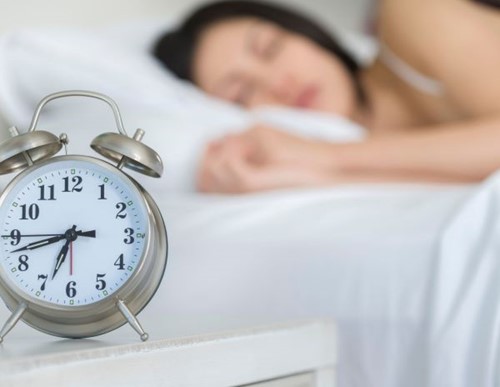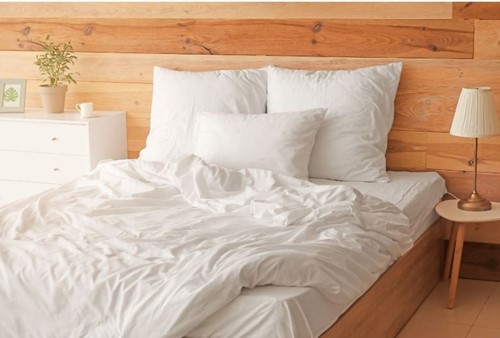How to Cultivate a Good Night's Sleep

Why It’s Important to Get a Good Night’s Sleep
The quality and quantity of an individual’s sleep influences the body’s ability to repair, grow tissue, bone and muscle and strengthen the immune system. Disturbed sleep can cause diminished physical and cognitive functioning, moodiness, emotional distress and lower your body’s ability to prevent illnesses. The sleep/wake cycle refers to daily 24 hour sleep patterns controlled by the body’s circadian rhythms.
Download Free Bedtime Diffuser Recipe Here
What Happens While You’re Sleeping

Your brain sorts and processes information collected throughout the day. When you’re asleep your brain is actually busy creating long term memory.
Your body releases hormones while you are asleep that have very specific roles in maintaining wellness. Melatonin, released by the pineal gland controls your sleep patterns. Levels of cortisol, often called the stress hormone, is lower during the first few hours of sleep before rising to peak soon after you wake up. This helps you wake up and switches on your appetite.
Insomnia vs. Sleep Deprivation
Insomnia is sleeplessness that cannot be attributed to an existing medical, psychiatric, physical or environmental cause. Individuals suffering from sleep apnea, narcolepsy and restless leg syndrome should seek the advice of a healthcare professional.
Sleep deprivation is not a specific disease. New parents are the classic example of sleep deprivation.
How to Cultivate a Good Night’s Sleep
Get my Bedtime Diffuser Blends Here

Maintain a regular sleep/wake schedule. Establish a routine for getting up and going to bed and stick with it for 21 days. Similar to a fitness routine or diet, it takes 21 days minimum to establish a routine. Don’t expect immediate results. Watch television, check email and chat with friends on social media in another room, not your bedroom. Overstimulation from electronic screens can derail your new sleep routine before it becomes established.
Launder your bed linens regularly. Invest in a quality mattress and pillow, if that is not in your budget consider a good quality mattress overlay and a new pillow. Side sleepers and back sleepers have different body postures and a pillow that supports your head/neck can make an incredible difference in your physical comfort. Use room darkening drapes and a white noise machine if your neighborhood is loud or a street lamp shines into your sleep space.
A Step-by-Step Bedtime Routine for a Good Night’s Sleep
- Diffuse essential oil blends with terpenoids and constituents that produce a calming response in the limbic area of the brain; this signals your body it is time to sleep. Get my favorite bedtime blends in a printable card HERE.
- Establish a set time each evening you will begin your bedtime ritual - for example 8:30 pm. Turn off electronics. Silent your cell phone, consider setting up an automatic message reply.
- Take a hot bath with Epsom Salt - soak away stress, tension and allow yourself to relax. After your bath, cleanse your face and moisturize your skin.
- Warm a cup of herbal tea (No caffeine!) Focus on your breathing and enjoying the taste of the warm drink. Imagine it sliding into your body and preparing you for a restful sleep.
- Speak positive affirmations about sleep. ‘My body and my mind are ready to rest’; ‘My dreams are a place for positivity and hope’; ‘Calming thoughts and optimism will fill my dreams’.
- Place a white noise machine on your bedside table and switch it on as you tuck yourself under the covers.
- Try applying 1-2 drops of lavender essential oil to the palms of your hands; rub vigorously and cup your hands over your nose. As you inhale the aroma of the essential oil the terpenoids activate the limbic system of your brain signaling your body it is time to relax and prepare for sleep.
You’re tucked in, the lights are off. Take some slow deep breaths and close your eyes. Whisper a little prayer in your thoughts and let God have the cares of the day. He can handle whatever you give Him.
Some Don’ts Before Bedtime:
Don’t exercise just before bed
Don’t eat a huge meal
Don’t consume caffeine or nicotine
You might also like:
source: WebMD 'What Happens While We're Sleeping'



